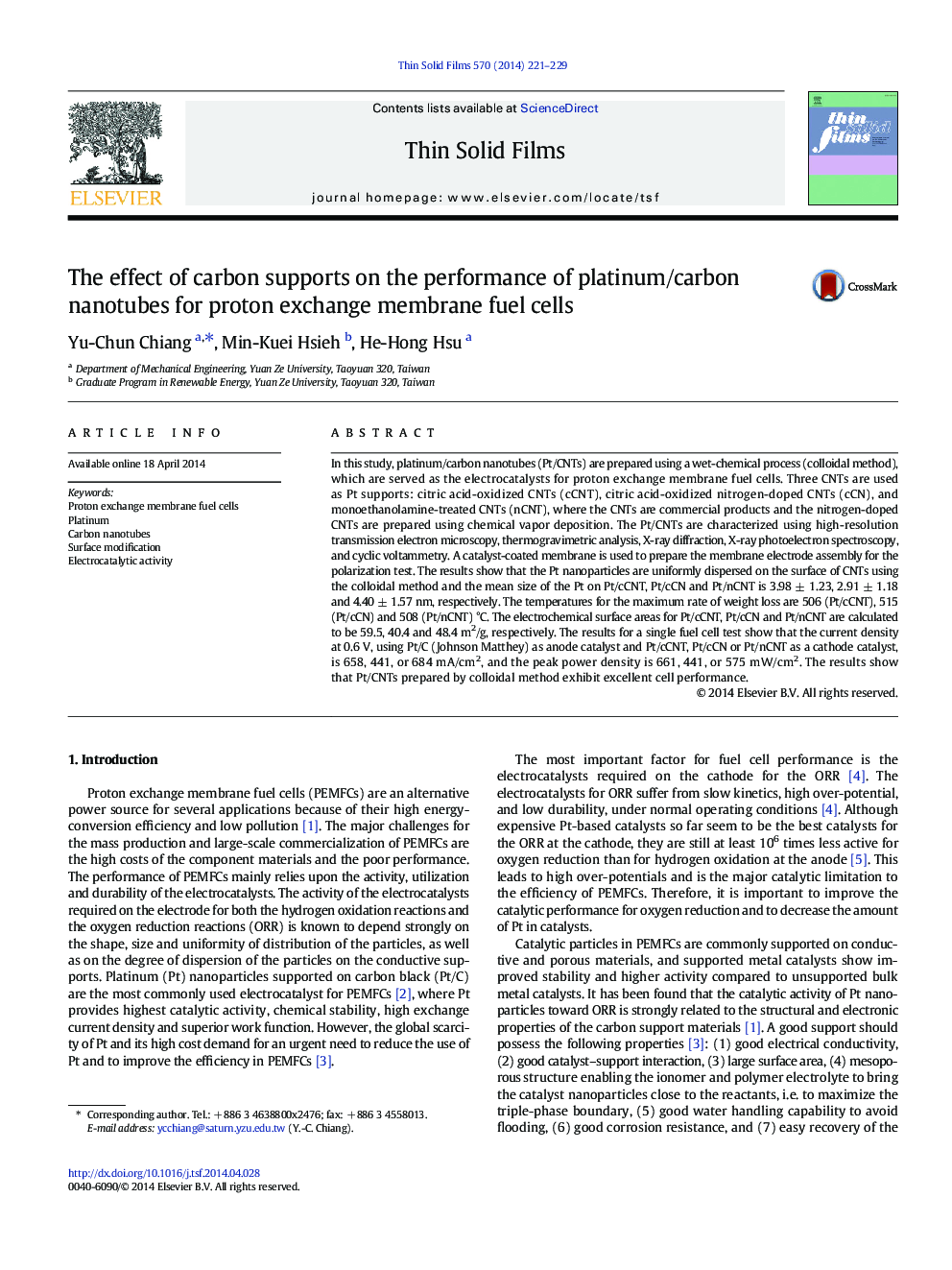| کد مقاله | کد نشریه | سال انتشار | مقاله انگلیسی | نسخه تمام متن |
|---|---|---|---|---|
| 1664928 | 1518034 | 2014 | 9 صفحه PDF | دانلود رایگان |
• Carbon nanotube supported platinum nanocatalysts have excellent cell performance.
• Nitrogen atoms in carbon nanotubes facilitate the deposition of Pt nanoparticles.
• High percentage of Pto improves the oxygen diffusion to active catalytic sites.
In this study, platinum/carbon nanotubes (Pt/CNTs) are prepared using a wet-chemical process (colloidal method), which are served as the electrocatalysts for proton exchange membrane fuel cells. Three CNTs are used as Pt supports: citric acid-oxidized CNTs (cCNT), citric acid-oxidized nitrogen-doped CNTs (cCN), and monoethanolamine-treated CNTs (nCNT), where the CNTs are commercial products and the nitrogen-doped CNTs are prepared using chemical vapor deposition. The Pt/CNTs are characterized using high-resolution transmission electron microscopy, thermogravimetric analysis, X-ray diffraction, X-ray photoelectron spectroscopy, and cyclic voltammetry. A catalyst-coated membrane is used to prepare the membrane electrode assembly for the polarization test. The results show that the Pt nanoparticles are uniformly dispersed on the surface of CNTs using the colloidal method and the mean size of the Pt on Pt/cCNT, Pt/cCN and Pt/nCNT is 3.98 ± 1.23, 2.91 ± 1.18 and 4.40 ± 1.57 nm, respectively. The temperatures for the maximum rate of weight loss are 506 (Pt/cCNT), 515 (Pt/cCN) and 508 (Pt/nCNT) °C. The electrochemical surface areas for Pt/cCNT, Pt/cCN and Pt/nCNT are calculated to be 59.5, 40.4 and 48.4 m2/g, respectively. The results for a single fuel cell test show that the current density at 0.6 V, using Pt/C (Johnson Matthey) as anode catalyst and Pt/cCNT, Pt/cCN or Pt/nCNT as a cathode catalyst, is 658, 441, or 684 mA/cm2, and the peak power density is 661, 441, or 575 mW/cm2. The results show that Pt/CNTs prepared by colloidal method exhibit excellent cell performance.
Journal: Thin Solid Films - Volume 570, Part B, 3 November 2014, Pages 221–229
